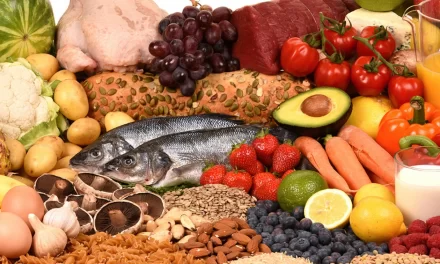Dinner is the last mealtime, but not the least important for that. The daily challenge of many moms is to get children to respect meal times and eat everything that is served to them; however, some children are demanding, and achieving this is a challenge that implies creativity but, above all, a lot of patience!
How should dinner be?
Although at night the energy requirement (calories) decreases, the body continues to work. A correct dinner must incorporate at least two food groups from El Plato del Bien Comer and provide between 20 and 25% of the day’s nutritional needs.
Recommended nutrients to sleep more and better:
Vitamins of group B: look for cereals enriched with vitamin B12; this vitamin intervenes in regulating sleep cycles through a substance called melatonin. B12 deficiency can affect the rest of the little ones.
Magnesium: lack of sleep is one of the symptoms of this mineral deficiency. You find it in dark leafy vegetables (like chard and spinach), seeds, nuts, lima beans, lentils, and fish.
Vitamin D: According to the Journal of Clinical Sleep, there is a close relationship between vitamin D deficiency and daytime fatigue. Includes milk fortified with vitamin D and sunbaths.
Potassium: Potassium deficiency can lead to difficulty staying asleep. The banana contains potassium and the tomato, the beans, the avocado, and the potatoes with skin.
Tryptophan is an amino acid involved in the production of serotonin, a neurotransmitter that promotes healthy sleep and a good mood.
The importance of dining as a family
Research shows that children who eat dinner as a family are less likely to become overweight or obese, make healthy food choices, and be less vulnerable to developing eating disorders.
Television is not the best ally when it comes to eating; in addition to cutting off family communication, it distracts the child’s appetite. Consider that dinner should be served not too late; the recommendation is to do it an hour before going to bed.
Dinner affects your night’s rest.
While we sleep, our body continues to function with an intensity similar to when we are awake. And it is necessary to ensure a good night’s rest so that our muscles can regenerate, our immune system regenerates, or our eyesight improves. Our digestive system also works when we sleep; that is why dinner must help our bodily functions develop correctly and allow us a good rest.
The importance of your dinners being healthy view GALLERY
Try not to go to bed on an empty stomach because hunger will prevent falling asleep. But don’t overeat either, or you’ll feel too heavy to sleep. Nutritionists often agree that dinner should provide about 20% of your daily calories. That way, you will not starve, and your night metabolism will not be altered either.
What foods to choose
Vegetables: at night, it is preferable to have cooked vegetables, either steamed, cooked, or in cream. Save salads for another time of day, as they can cause bloating and be indigestible.
Proteins: choose fish before meat because it is more digestive. When you opt for meat, it better be white, such as chicken or turkey.
Cooked fruit: they are very digestive and help us avoid the desire to eat sweets at night. Try apples, pears, peaches … bake, grill, or microwave them.
Carbohydrates: it is convenient to spread them throughout the day and take only a small amount at night, but you don’t need to give them up. You can have a slice of wholemeal bread or a handful of rice, if possible, also wholemeal.
Yogurt: as long as it is a natural yogurt that does not contain added sugars. If you like dairy, you can have fresh cheeses such as fresh goat or mozzarella.
Infusions: Any digestive and does not contain theine is ideal, such as chamomile or linden.
At dinners, avoid fatty sausages, precooked dishes, fried foods, spicy foods, soft drinks, exciting drinks such as coffee, fried foods, and dairy desserts, such as custard or rice pudding.





